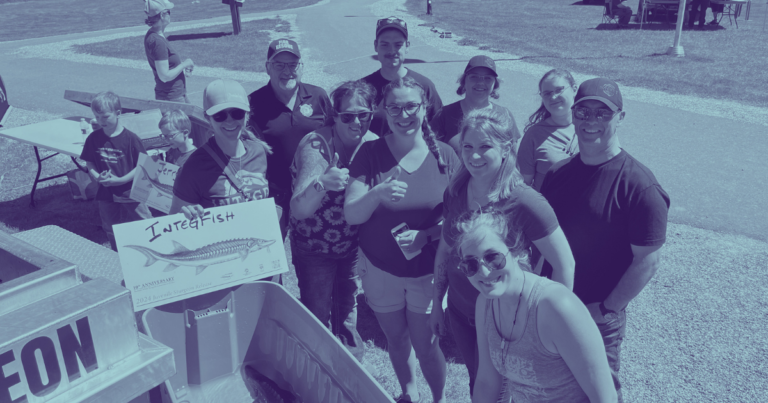It’s International Women’s Day and we wanted to share some inspiring stories about women in the credit union system. We’ve all heard the stories about credit unions being the first banks and financial institutions to lend to women in the 60s, but here are some equally inspiring stories on this very special day.
Local Leadership Learnings
In 2019 Amanda Hallmark (she/her) had the good fortune to facilitate conversations with staff and board members about what Integris is, does and why it matters. In these sessions she often asked participants WHY – why do you choose to work for the credit union. One director who had served a few terms shared their story and it was so meaningful to hear first-hand. To be a director you must be a member in good standing. Upon asking this director how long she had been a credit union member and why she had become one in the first place, she shared that sometime in the 80’s she and her spouse were looking to borrow money to build a garage. She was a controller at one of the very big mills and her husband worked in a job that saw him in camp. The banks would not allow her to be the signor on this lending, it had to be her husband; however, the credit union was willing to lend the money in her name. This experience resulted in her becoming a devoted credit union member and eventually putting her name forward for a number of terms as a director. She was then and continues to be very passionate about building community.
Amanda shares “I had heard that credit unions were the first to lend money to women in their names without a male signor but to hear about that first hand from someone I could relate to on certain levels and someone whose experience was in my lifetime was really impactful. I am learning how to see privileges I benefit from simply from being born a cis, hetero, able-bodied, white woman; some of my experiences have been easier than for others at the same time, I have had personal stories that surprise me and others when I say them out loud, including being denied access to medical treatments because I ‘was an unmarried woman’.”
This conversation and many others remind us that what we experience here and now, hasn’t long been the case. Amanda shares these final sentiments: “Women’s experiences have changed a lot in this lifetime. I don’t want to take that for granted and I don’t want to forget my responsibilities. Let’s celebrate and let’s continue to help drive change as we better understand how systems and practices may be inequitable.”
Uzbekistan Female Leaders a Force for Change
Born and raised in a rural area in the outskirts of Bukhara, Saifullaeva Matlyuba was a typical Uzbekistan woman when it came to finances: her husband was the family’s main wage earner and she was responsible for the home and family, supplementing her husband’s income with a small salary she earned as a nurse at the village kindergarten.
All that changed one evening when Matlyuba’s husband, returning home from work, was struck by a car and seriously injured. No longer able to perform the difficult physical labor required of his construction job, he was forced to accept a lower paying job. The family’s financial position was precarious, and Matlyuba knew that she needed to find a way to earn money.
With limited job options, Matlyuba decided to sell fruit and vegetables in Bukhara’s Central Bazaar. She needed only 20,000 soums (US$20) to start her business, but quickly found herself running out of ways to raise the money: relatives and neighbors weren’t able to help, and the local bank wasn’t interested in funding a business of that small size.
Then Matlyuba learned from a neighbor that she could receive a loan from Umid Credit Union. When she arrived at the credit union she was warmly greeted as if she were a long-time member. At first she was hesitant to tell the credit union staff member who greeted her that she was looking to take out a very small loan. But during the interview with the credit union loan officer she was happy to learn that the credit union gave many such small-size loans. After a short interview Matlyuba signed the loan papers and was ready to start her “business career.”
Although Matlyuba’s business faced some difficult times during startup, her monthly sales totaled over one million soums (US$1,000) in a matter of months. She was eventually able to purchase a small piece of land (with a second loan from her credit union), which allowed her to grow and sell her own fruit and vegetables. Today, Matlyuba also herds cattle on her farm, sells products at her own store, and has invested money in a sewing workshop in her village that provides income to 12
local women.
Ecuadorian Community-Based Village Banks
Village banks are formed in small communities where there are little or no financial services available. Field agents from credit unions help potential borrowers organize themselves into solidarity groups of four to six women in each. Five of these groups then join together to make a village bank. The village bank becomes the member of the credit union and seeks a loan, which is then divided among the solidarity groups and their members. Through the solidarity lending methodology, liability for each individual loan is transferred to the solidarity group unit. If one woman falls delinquent on her loan repayment, the other members of her group agree to make the payment. If a solidarity group does not repay the loan, then the entire village bank is responsible for ensuring that the loan is repaid.
The village bank members attend weekly meetings. Savings deposits and loan payments are made at each meeting, where the women also gather for educational sessions. The women are required to save a minimum of US$0.50 per week and are encouraged to save more. When members repay their first loan of US$60 on time they can get a second loan of US$120 and so on. Each loan cycle is 16 weeks.
The credit union difference stands out in village banking. Unlike similar programs, the credit union provides group members with access to much needed savings services, where their savings will be deposited in safe financial institutions. They also encourage group members to graduate or to become full members of the credit union after successfully completing four loan cycles. Women—who previously had no access to financial services, no credit history and virtually no hope of getting a fair-priced loan to build businesses— benefit from high-quality financial services at competitive prices as a member of a credit union.
Happy International Women’s Day
On International Women’s Day, we hope these stories about women and credit unions inspire you. Inspire you to learn more about where you choose to bank; inspire ideas to increase financial literacy among women; inspire you to share your experiences about gender inequities in the financial system, and inspire you to learn more about your privilege if you haven’t experienced any inequities. Thank you to all who are looking for ways to actively support and celebrate women, today and everyday. Happy International Women’s Day!
Amanda Hallmark (she/her) is the Talent Development Manager for Integris Credit Union. She is honoured to use her voice to speak on gender inclusivity and incredibly grateful to live Life Out Here (and pet all dogs) on the ancestral lands of the Lheidli T’enneh.







